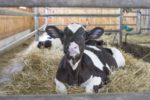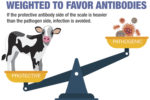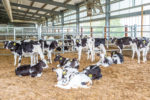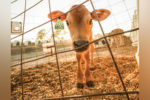Colostrum
Having a properly managed colostrum bank and feeding program is key to calf health. How colostrum is frozen and thawed can be the difference between a healthy calf and a sick one.
Read More
Colostrum: A powerhouse nutraceutical for older calves
Studies show that feeding calves colostrum beyond day one can have a positive impact on calf health, reducing disease duration and prevalence and calf mortality.
Read More
Enhancing calf wellness: A comprehensive approach
Establishing pathways to productivity, embracing early intervention, seamless weaning and housing solutions and maximizing the benefits of milk nutrition are key to raising healthy, productive replacement heifers.
Read More
Can your calves pass these tests?
While every operation is different, key tests and measurements can indicate a farm’s ability to raise calves well. These include passive transfer, feeding hygiene, housing cleanliness and comfort, and a calf’s growth rate and health markers.
Read More
The hidden enemy: How oxidative stress impacts dairy calves and what you can do
Awareness of how common calf management practices can induce oxidative stress is the first step in managing for it.
Read More
Calf scours prevention begins before birth
Twelve years ago, researchers estimated that a case of scours cost $56 per head, but that number is likely significantly lower than it should be. To minimize this, farms should focus on genetics, dry cow management, colostrum and transition milk.
Read More
Counter the complexity of scours with a focused effort
While scours is a complex issue, a focused effort to provide calves with adequate antibodies, a clean environment and minimal exposure to older animals can greatly decrease a calf’s chances of falling victim to scours.
Read More
G.I. tract health is key in pneumonia prevention
Probiotics may help with pneumonia prevention, as they aid in keeping the microbiome in balance and preserving calf health.
Read More
Invest in the perfect calf
Raising healthy calves may cost more pennies initially, but it pays back dollars in the long run as animals require fewer treatments, perform better, stay in the herd longer and promote better employee morale.
Read More



.jpg?height=125&t=1710528430&width=150)




